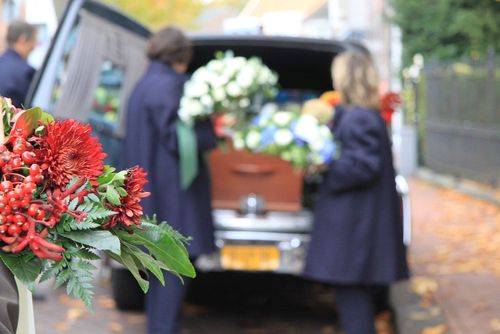 Funeral homes or mortuaries provide essential services when it comes to burials and services for the dearly departed and those who mourn them. Some of these essential services include proper burial or cremation of the body, coordinating interment services with a cemetery, preparing and hosting funerals, and more. There are several people who work together to make mortuaries function efficiently. Here’s what you should know.
Funeral homes or mortuaries provide essential services when it comes to burials and services for the dearly departed and those who mourn them. Some of these essential services include proper burial or cremation of the body, coordinating interment services with a cemetery, preparing and hosting funerals, and more. There are several people who work together to make mortuaries function efficiently. Here’s what you should know.
Skills Needed
Although some roles require education and training, there are certain skills everyone involved should have to best attend to the needs of the deceased and the bereaved:
- Empathy and compassion: The ability to empathize with those who mourn is an important skill for working in the funeral business. Grief is a complex process that manifests differently from person to person. Putting yourself in a mourner’s shoes helps you to assist them through the process of making arrangements.
- Communication and listening: Being a great communicator is as much about being able to listen as it is about talking. Funeral professionals must be able to communicate effectively with people who may not be at their best in terms of clarity and decision-making.
- Patience and diligence: Working in the business of burials will require patience. It is your job to make sure the process is completed efficiently and in accordance with regulations. You can’t lose sight of the big picture, and the bereaved rely on you to guide them through every step.
If these skills are your strengths, a career in offering funeral services may be the right move for you.
Roles in a Funeral Home
It takes a team of dedicated individuals to make sure the last death rites are executed as per local laws and according to the wishes of the deceased and the comfort of those who mourn. These are some of the common roles at a funeral home or mortuary:
- Funeral director: Sometimes called a mortician or undertaker, the funeral director oversees the business and services rendered. In this role, you work with the dead person’s loved ones to plan and execute a ceremony. As a director, you may also be responsible for the preparation of corpses for burial and cremation. If there is no clergy or religious actor available, you may lead or conduct the service. This role requires a license.
- Funeral attendant or assistant: An attendant fulfills a variety of duties at a funeral parlor. As an attendant, you may be expected to transport coffins, prepare rooms for services, and provide assistance to the director. In many businesses, funeral attendants also provide support and comfort to families and friends. Sometimes the terms “funeral attendant” and “funeral assistant” are interchangeable, or the latter has a smaller scope of responsibility.
- Embalmer: This licensed specialist takes care of embalming bodies for burial. This may be an independent contractor or someone who is directly employed by the mortuary.
- Crematory technician: This is the person tasked with preparing the body, cremating it, and disposing of the ashes as per regulations. Some funeral homes or crematoriums require licensure.
- Delivery driver: Funeral homes sometimes employ persons whose jobs include delivering caskets and other materials needed for services and burials. As a delivery driver, you’ll need a driver’s license to operate a vehicle. There may be other certifications needed, depending on your employer.
- Other positions: Because funeral parlors help with various details surrounding death, there are other roles that are either independently contracted or regularly employed, such as caterers, florists, musicians, administrative assistants, and planners.
Funeral homes and mortuaries carry out an important mission for the many people who die each year and those who love them. There are different roles and responsibilities needed to execute funerals, burials, and cremations. While some of these duties require special training, the ability to empathize, communicate, and support the bereaved are necessary skills for anyone in the business of death.